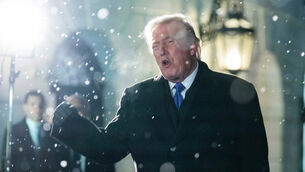Obama to seek 3-year spending freeze
Obama will outline the spending hold-down in his State of the Union address tonight and will spell it out in detail on February 1, when he unveils his second budget.
Obama is under fire for a record deficit and has called for a bipartisan congressional commission to consider spending cuts and tax increases to improve the country’s fiscal outlook.














